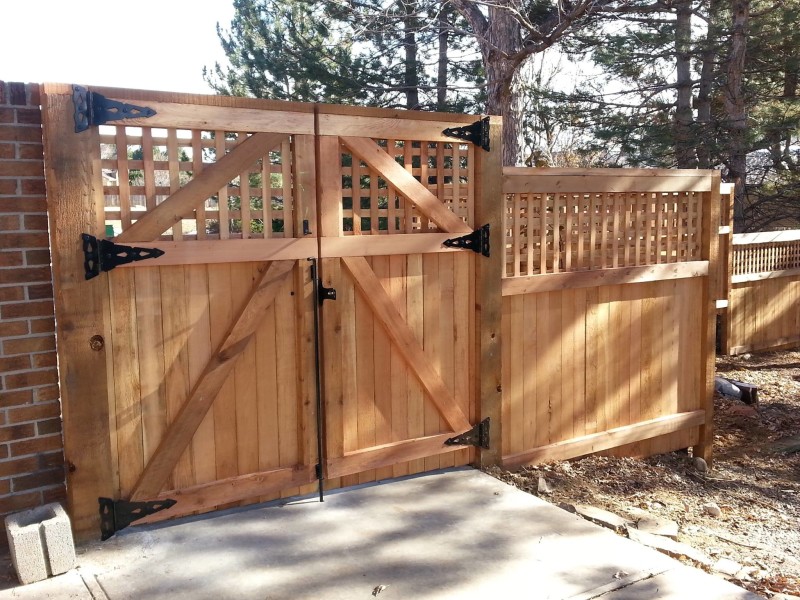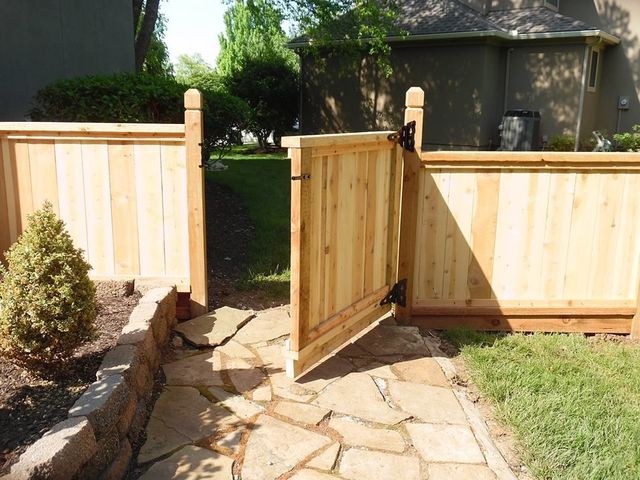All Categories
Featured
When you make a decision to install a fencing around your residential property, it's important to understand the authorization needs specific to your location. Right here's a comprehensive look at the licenses you might need for fencing installment.
Why Do You Required an Authorization for Fencing Installation? A fencing is even more than just a barrier in between properties-- it can impact safety and security, building value, looks, and even ecological problems. Local federal governments call for permits to ensure that fencings fulfill particular criteria and do not create problems for energies, next-door neighbors, or the area all at once. Permits additionally make sure that the installation conforms with zoning laws, constructing codes, and safety and security regulations.
![]()
Kinds Of Licenses You Might Require. Structure Permit. A structure authorization is one of the most typical licenses required for fencing installation. If you're building a fence over a specific elevation (normally over 6 feet), you'll likely require a building authorization.
Zoning Permit. A zoning authorization ensures your fence conforms with place, height, and obstacle regulations. Fencings might need to be established back a certain range from walkways, roadways, or residential or commercial property lines to stop obstruction or interference with energies.
HOA Authorization. You may require to seek approval prior to installing a fence if your home is part of a home owners organization (HOA) HOAs generally have guidelines that regulate the appearances and structure of fencings to ensure they are in harmony with the community. You could need to submit your strategies for authorization, and the HOA might restrict fencing material, elevation, or design.
Specialty Permits. In some locations, there might be additional licenses required for specific situations. As an example, if your fencing is near a protected ecological location or situated in a disaster area, you may need to obtain specialty permits connected to ecological influence. If the fence is in a location with underground utilities, you might need to get clearance to prevent destructive pipelines or cable televisions.
![]()
Easement or Energy Firm Approval. Before mounting a fencing, it's crucial to inspect whether the residential or commercial property includes an easement, such as an utility easement, which can influence where you can place your fence. Easements are areas of land assigned for exclusive or public energies, and you might need authorization from the energy company or various other authority to develop within this location.
Exactly How to Discover What Allows You Need. To ensure that you're complying with all the essential regulations, here's how you can identify the details permits needed for your fencing setup:
![]()
Go To Your City Government Office: The initial action is to get in touch with your regional structure or zoning department. Lots of cities and areas have standards offered online that specify what sorts of permits are needed for fencing setup. Otherwise, seeing the office or calling face to face can aid clear up the process. Inspect Your City's Web site: Several towns give details regarding fencing setups and the authorizations required through their main internet sites. Some websites also enable you to submit applications on the internet. Consult a Fencing Setup Expert: If you're not exactly sure regarding regional laws, an expert fencing contractor can assist. They recognize with the allowing procedure and can direct you with the actions. The Effects of Not Getting a License. Failing to safeguard the essential permits before setting up a fence can cause substantial repercussions. You might be fined or called for to get rid of the fencing completely. In addition, if you determine to market your residential property in the future, the absence of a license could deter prospective purchasers, as they might see it as an indicator that the residential property is not certified with neighborhood laws. Making certain that you have the proper licenses will certainly conserve you time, cash, and migraines in the long run.
Conclusion. Setting up a fence around your home can include both safety and security and visual appeal, however it is very important to ensure you're complying with the legal action in the procedure. Researching the particular authorization needs for your area, consisting of building permits, zoning guidelines, HOA approval, and utility permissions, will assist guarantee your fence installation goes smoothly. Taking the time to understand these requirements now can conserve you from costly mistakes and possible lawful concerns down the line.
Why Do You Required an Authorization for Fencing Installation? A fencing is even more than just a barrier in between properties-- it can impact safety and security, building value, looks, and even ecological problems. Local federal governments call for permits to ensure that fencings fulfill particular criteria and do not create problems for energies, next-door neighbors, or the area all at once. Permits additionally make sure that the installation conforms with zoning laws, constructing codes, and safety and security regulations.

Kinds Of Licenses You Might Require. Structure Permit. A structure authorization is one of the most typical licenses required for fencing installation. If you're building a fence over a specific elevation (normally over 6 feet), you'll likely require a building authorization.
Zoning Permit. A zoning authorization ensures your fence conforms with place, height, and obstacle regulations. Fencings might need to be established back a certain range from walkways, roadways, or residential or commercial property lines to stop obstruction or interference with energies.
HOA Authorization. You may require to seek approval prior to installing a fence if your home is part of a home owners organization (HOA) HOAs generally have guidelines that regulate the appearances and structure of fencings to ensure they are in harmony with the community. You could need to submit your strategies for authorization, and the HOA might restrict fencing material, elevation, or design.
Specialty Permits. In some locations, there might be additional licenses required for specific situations. As an example, if your fencing is near a protected ecological location or situated in a disaster area, you may need to obtain specialty permits connected to ecological influence. If the fence is in a location with underground utilities, you might need to get clearance to prevent destructive pipelines or cable televisions.

Easement or Energy Firm Approval. Before mounting a fencing, it's crucial to inspect whether the residential or commercial property includes an easement, such as an utility easement, which can influence where you can place your fence. Easements are areas of land assigned for exclusive or public energies, and you might need authorization from the energy company or various other authority to develop within this location.
Exactly How to Discover What Allows You Need. To ensure that you're complying with all the essential regulations, here's how you can identify the details permits needed for your fencing setup:

Go To Your City Government Office: The initial action is to get in touch with your regional structure or zoning department. Lots of cities and areas have standards offered online that specify what sorts of permits are needed for fencing setup. Otherwise, seeing the office or calling face to face can aid clear up the process. Inspect Your City's Web site: Several towns give details regarding fencing setups and the authorizations required through their main internet sites. Some websites also enable you to submit applications on the internet. Consult a Fencing Setup Expert: If you're not exactly sure regarding regional laws, an expert fencing contractor can assist. They recognize with the allowing procedure and can direct you with the actions. The Effects of Not Getting a License. Failing to safeguard the essential permits before setting up a fence can cause substantial repercussions. You might be fined or called for to get rid of the fencing completely. In addition, if you determine to market your residential property in the future, the absence of a license could deter prospective purchasers, as they might see it as an indicator that the residential property is not certified with neighborhood laws. Making certain that you have the proper licenses will certainly conserve you time, cash, and migraines in the long run.
Conclusion. Setting up a fence around your home can include both safety and security and visual appeal, however it is very important to ensure you're complying with the legal action in the procedure. Researching the particular authorization needs for your area, consisting of building permits, zoning guidelines, HOA approval, and utility permissions, will assist guarantee your fence installation goes smoothly. Taking the time to understand these requirements now can conserve you from costly mistakes and possible lawful concerns down the line.
Latest Posts
NAPA AutoCare Certified: Rely on Montclare Auto Repair for Top-Tier Repairs
Published Apr 20, 25
2 min read
Montclare Auto Repair: The Trusted Choice for Dependable Repair Solutions
Published Apr 20, 25
2 min read
Comprehensive Auto Care at Montclare Auto Repair - See Our Offerings
Published Apr 20, 25
2 min read
More
Latest Posts
NAPA AutoCare Certified: Rely on Montclare Auto Repair for Top-Tier Repairs
Published Apr 20, 25
2 min read
Montclare Auto Repair: The Trusted Choice for Dependable Repair Solutions
Published Apr 20, 25
2 min read
Comprehensive Auto Care at Montclare Auto Repair - See Our Offerings
Published Apr 20, 25
2 min read